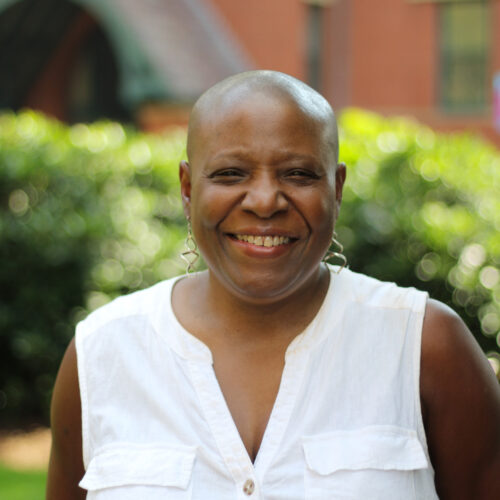SPH’s 10-Point Plan for Diversity, Equity, Inclusion, and Justice.

SPH’s 10-Point Plan for Diversity, Equity, Inclusion, and Justice
The plan embodies our continued commitment to DEIJ and provides a framework for advancing this work throughout all that we do.
We are committed to Diversity, Equity, Inclusion, and Justice throughout our work, compiling with applicable law and Boston University guidance. Our 10-point plan provides a framework to organize the work being done at the School and to inform our work moving forward, recognizing that this work is ever-changing and never finished.
We outline our initiatives in each of the ten pillars, below, and provide updates to initiatives as appropriate.
Equitable systems that eliminate structural barriers
Current Initiatives
Committees: Providing clear guidelines on the selection process for all committee members at the school, creating transparency and access to all committee positions.
Search Committees: All members of search committees are required to complete diversity and anti-bias trainings. All search committees are run in a standardized fashion with multiple evaluators for all positions and structured questions asked similarly of all candidates where relevant.
Performance Reviews: Supervisors are encouraged to conduct quarterly performance reviews, in addition to the required annual review, of all employees to ensure transparency and clarity of expectations.
Establishment of the DEIJ-Committee: The School bylaws were modified to formally recognize and establish a committee dedicated to DEIJ, which, together with the establishment of the Associate Dean for DEIJ position in the by-laws, firmly embeds DEIJ as one of the core pillars of the school with our work on education, research, practice, and administration.
Advisory Boards: We review the membership and structure of all advisory boards to ensure viewpoint diversity.
Onboarding: The School regularly updates onboarding initiatives so that all new community members are welcomed and provided with the tools needed to succeed.
Bias Reporting: The School provides clear guidance on reporting incidences of bias both in the classroom and in the workplace for students, faculty, and staff.
Structural and systemic practices that facilitate the success of all students
Current Initiatives
Equal Employment Opportunity: The School works closely with Boston University’s Equal Opportunity Office to promote and realize our commitment to equal opportunity. We work to ensure that equal opportunity is a reality at the School of Public Health, that our faculty, staff, and students can work and study in an environment free of unlawful harassment and discrimination, and that BUSPH meets its obligations under federal and state equal opportunity laws and regulations. Our Equal Opportunity Office focuses on the following core areas:
Sexual and Gender-Based Misconduct (Title IX): Addressing gender discrimination, including sexual harassment and sexual misconduct
Equal Opportunity: Fostering an inclusive campus environment free from discrimination, harassment, and retaliation
Reasonable Accommodations: Ensuring equitable access for employees to all University services, programs, and resources
Career Advancement: The School offers training opportunities for employees to learn skills to advance their careers.
Faculty Promotion: There is clear guidance posted to the faculty handbook on the process for faculty promotion to ensure transparency and prevent bias.
Faculty and Staff Handbooks: There are extensive handbooks for both faculty and staff detailing processes and systems across the School to ensure transparency and prevent bias.
Allocation of resources with an equity lens to fund diversity, equity, inclusion, and justice efforts appropriately and in a way that ensures that the overall spend is in alignment with the commitment
Current Initiatives
Associate Dean for Diversity, Equity, Inclusion, and Justice: The School created a new Deans-level position for DEIJ in 2015, embedding this position in the by-laws in 2020.
Office of Diversity, Equity, Inclusion, and Justice: The Office of the Dean has dedicated staff to support the Office of DEIJ.
Funding to support trainings and programs: Funds are dedicated to hosting trainings and programs for the School community on topics of DEIJ.
Select Scholars and Preferred Partners: The School has dedicated staff to creating a pipeline for undergraduate students from partner colleges and employees from nonprofit organizations to gain admission to the School.
Think. Teach. Do. Fellowship: The Think. Teach. Do. (TTD) Fellowship offers SPH students an opportunity to advance public health excellence by serving as paid consultants to the School. Fellows advise on the design and implementation of best practices that support and strengthen our community. Assigned to projects across the School, Fellows collaborate with faculty, staff, and students to ensure that curricula, course materials, trainings, and research activities align with the varied and evolving needs of the global public health landscape. The Fellowship seeks to engage students with a wide range of experiences and perspectives, reinforcing our mission to “Think. Teach. Do. For the Health of All.”
Equitable systems that promote academic equity and student success for all students inside and outside the classroom
Current Initiatives
Defined Institutional Commitment: The mission and values of the School demonstrate a defined and authentic commitment to diversity, equity, inclusion, and justice.
Student Support: Core course tutors and peer coaches provide academic support resources to current students, free of charge.
Student Groups: The Office of Graduate Student Life supports numerous students groups, which are open to all.
Generation Health Practicum Award: Financial support is provided for students with financial need who wish to engage in unpaid practicums.
Mentorship: Our alumni mentoring program matches current students with alumni mentors, and the Emerging World Leaders Mentoring Program provides mentoring and networking for doctoral students.
Syllabus Template: Our syllabus template includes expectations of ourselves at our best, the student code for engagement in the virtual community, resources on proper use of pronouns, and inclusivity.
Curriculum and pedagogy that design the classroom experience for academic equity
Current Initiatives
Syllabus Assessment: The School launched a School-wide review of all syllabi, asking all instructors to evaluate their own syllabi to ensure inclusion and belonging for all (e.g., Inclusion of perspectives, Accessibility, Critical engagement, Diverse pedagogical teaching techniques, Respect for student needs, Respect for student identity, Attention to language, and Facilitating discussion of different perspectives).
Training and professional development for instructors and teaching assistants: There will be further trainings available to instructors on understanding matters of DEIJ as well as how to navigate classroom conversations.
Structures and policies that promote access and equity in the hiring and promotion process and create an environment that allows all to thrive
Current Initiatives
Faculty, Staff, and Student Senates: The School has three senates representing faculty, staff, and students in the community.
Search Committees: Search Committees processes are transparent, and members of committees complete required anti-bias trainings.
Job Descriptions: Job descriptions are developed to accurately reflect the responsibilities and duties of the role and in consultation with administration.
Establish large applicant pools: Search committees do broad outreach for open roles at the School.
Regular provision of knowledge and tools to enable the community to act in accordance with the values of the School, engage in healthy discussion, and create an inclusive environment
Current Initiatives
Community Conversations: The School regularly hosts fora for faculty, staff, and students around difficult topics.
Public Health Conversations: The School hosts frequent programs on pressing matters in public health, connecting the community with experts in the field and encouraging discussion.
SPH Reads: The Office of DEIJ, in coordination with Graduate Student Life, hosts a School-wide reading program, selecting a book annually, making the book available to the community, and hosting the author or relevant experts in conversation.
All School Retreat: The Office of the Dean hosts an annual School-wide retreat in the fall, for faculty and staff to connect and to discuss the vision and direction of the School.
DEIJ Webpage: The School launched a designed DEIJ webpage to better communicate with the community about DEIJ initiatives and to establish easier access to resources.
Trainings and professional development opportunities for students, faculty, and staff
Current Initiatives
Trainings: The School requires mandatory anti-bias in the workplace modules, mandatory Title IX trainings, and additional optional trainings throughout the year. All members of Search Committees complete additional anti-bias training.
Department Level Committees: Every department or unit at the School has established a committee dedicated to aspects of DEIJ.
Shared Vocabulary: The Medical Campus developed the Glossary for Cultural Transformation to offer our community a shared vocabulary and helpful definitions.
An inclusive and welcoming community, illuminating and eradicating any inequitable conditions and promoting the wellbeing of all
Current Initiatives
Annual Survey: The School conducts an annual survey of the broad community, including a module specific to matters of community and belonging. The survey findings inform community and belonging strategy and initiatives.
DEIJ Reflections: The Associate Dean of DEIJ offers reflections on different topics of DEIJ to share with the broad community.
Monthly updates from the DEIJ Committee Members: The DEIJ Committee writes and distributes monthly updates from members on a rotating basis to ensure information is shared across the School.
Engagement with the surrounding Boston community: The Activist Lab actively works with community partners around and surrounding Boston.
All-Gender Bathrooms: The Office of the Dean provided a map indicating the locations and directions of all-gender bathrooms on the medical campus.
Strategies that ensure an equitable admissions process, and expand access for all students to education at SPH
Current Initiatives
Scholarship opportunities: All students accepted into our on-campus MPH and MS single degree programs receive automatic grants without additional applications to immediately reduce the cost of tuition.
Admissions Hours with the Dean: The Dean of the School hosts monthly admissions hours to open channels of dialogue with prospective students.
Removed GRE testing requirement: The School removed the GRE testing requirement for admission for all applicants.
Need-based aid: The School has streamlined the application process for need-based aid for all students.
